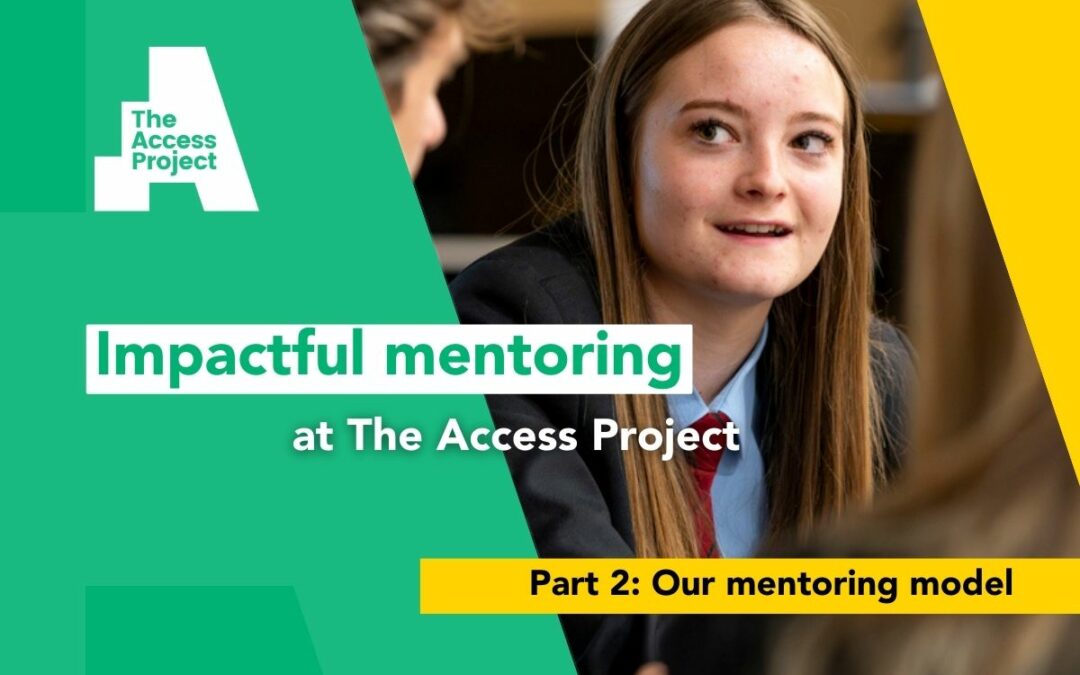“Mentoring is a helping relationship based on an exchange of knowledge, experience, and goodwill.” – David Clutterbuck, 2019
At The Access Project, these words resonate at the core of our university readiness program, where mentoring takes centre stage.
In this week’s blog post, we’re exploring our mentoring model. Our expert in-school mentors work with groups of students in our partner schools, offering personalised one-on-one mentoring sessions that cover all facets of the university application process. This strategic approach is designed to set students up for success not only academically but also in navigating the transition to university life.
Our theory of change
Our guiding beacon is our theory of change, a roadmap for one-on-one mentoring sessions. These sessions are crafted to enhance students’ knowledge of the university application process, foster independence in pursuing academic interests, ignite motivation to apply and attend a top university, and bolster academic self-efficacy. In turn, students feel empowered to apply to prestigious universities, with many going on to place at top third institutions.
“Having a trusted member of staff who helps our students to navigate their challenges and achieve in spite of them is what makes the difference” – Karen Chamberlain, Headteacher at Lilian Baylis Technology School
Our mentoring model is grounded in the belief of the transformative power of close mentor-mentee relationships. We emphasise two critical elements: a strong rapport and a clear purpose. An effective mentoring relationship thrives on these foundations (Clutterbuck & Megginson 2004).
Working directly with students in their school contexts, our mentors foster an environment where each student’s unique journey is celebrated. Our mentors open their sessions to honest conversations, which enables students to articulate both their ambitions and concerns. Our mentors tailor their guidance to the individual, applying their expertise in university access to ensure every student succeeds in their distinctive way.
“Your role is unique for every student. It changes throughout their journey in education and their time on the program. You work with students to develop the skills to address their own challenges and truly believe in their own ability.” – University Access Officer at The Access Project, 2023
Widening access to University: The pathway to higher education
Mentors and mentees work together at crucial junctures along the journey to university. From recruiting students in Year 9 to celebrating results day in Year 13, our mentors are there every step of the way.
At Key Stage 4, sessions focus on building revision skills, making post-16 choices, and delving into the world of university through independent research. As students progress to Key Stage 5, sessions cover the selection of degree subjects, crafting personal statements, applying for student finance, and planning for results day. Each session has a specific aim and structure, allowing mentors to assess student progress and tailor their support.
These interactions not only shape the immediate journey but also provide insights that drive improvements to mentoring resources, training, and the development of future programs.
In our next blog, we delve into the impact of our mentoring, examining the effectiveness of our model.

